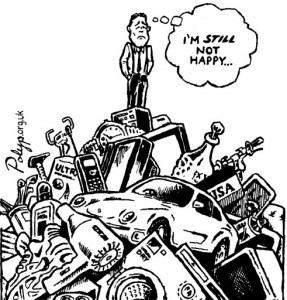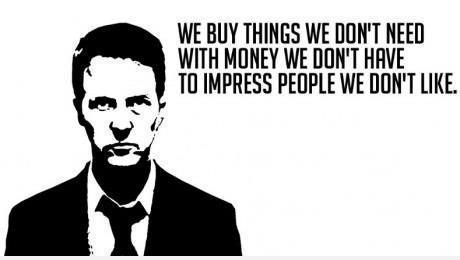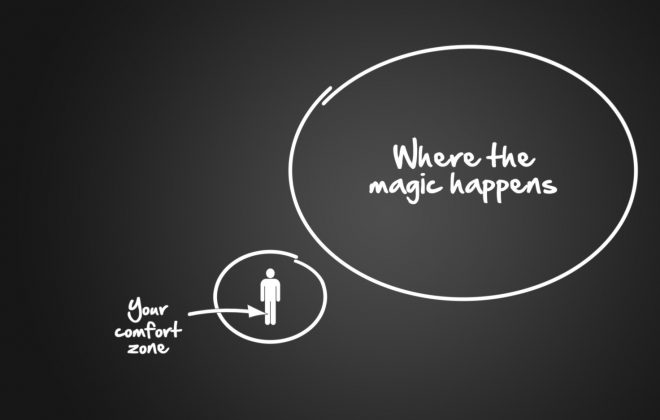Finding Freedom Away From Materialism
You have just purchased another brand new pair of running shoes. Is it because your old shoes have completely worn off and you needed new ones? Or is it simply because you just wanted to have these specific new shoes to keep up with the latest trends of the season?
It could be both or neither, but what I want you to gather from what seems like a pretty irrelevant question is why? What is the real reason behind why you purchased those running shoes? Did you really only purchase them because they were comfortable and stylish? Or was there another reason? Perhaps, in that particular moment did you come across a recurring thought of, “These would make me happy and I’d feel better about myself if I bought them.” I know it sounds ridiculous because very rarely do we stop to analyze and think critically about why we buy the things we do, but in today’s consumerism-driven world, this type of mentality has become problematic.
The Psychology of Materialism
In other words, this concept is commonly known as materialism.
Materialism is “a tendency to consider material possessions and physical comfort as more important than spiritual values.” In other words, acquiring a tremendous amount of wealth and possessing countless materialistic items becomes a continuous, repetitive cycle that brings you happiness temporarily. By temporarily meaning that it fulfills your desires at that given time, but in a week or month, you will no longer find that new shirt you just purchased as valuable anymore because by that time you will already pick up a new one to fit in with the top trends.
There is nothing wrong with occasionally spoiling yourself in moderation, whether that includes a new wardrobe or a more expensive investment such as upgrading your vehicle, but it becomes an issue when this type of behavior becomes a habit. You and I both probably know at least one person that compulsively buys things they don’t need, but they just won’t stop. It becomes a sick, obsessive routine to the point where even once they have all the things they want–they still seem to miserable!

Consumer Culture: Does it harm an individual’s well-being?
This brings us to a very serious issue in today’s society–American consumerism. In Amaitai Etzioni’s, “The Crisis of American Consumerism” he defines it as, “A culture in which the urge to consume dominates the psychology of citizens is a culture in which people will do most anything to acquire the means to consume — working slavish hours, behaving rapaciously in their business pursuits, and even bending the rules in order to maximize their earnings.” We see this thirst for more to be overpowering in the minds of American consumers, constantly buying things they do not necessarily need, but want. The fine line between the two have become blurred in the 21st century. While some of us contribute to and participate in the rise of American consumerism, we fail to recognize that materialism can take a serious toll on your relationships, well-being, and quality of life.
More Money, More Problems?
You’ve heard money doesn’t buy happiness countless times before, but do you truly follow this mantra? Is your desire to pursue material and wealth possessions so overpowering that you only receive satisfaction from life when your wants are met? Do you ever wonder why even when you have all the things you’ve ever wanted, you still feel like something is missing?
The truth is, what’s missing is your confidence and security to feel comfortable and genuinely happy with what you already have in your life. We spend so much of our time wishing we had this or that, without opening our eyes to see what we are already so blessed with.
Redefine what success truly means to you. Is it the money? The power? The materialistic items you have? Or is it something that has always been so deeply rooted inside you that you just never had the nerve to dig up, just yet.
Your money, your job, and your things–do not define you. These are only a small part of you. Your internal happiness does. In order to live a fulfilling life, learn how to separate your priorities, that is, your needs apart from your wants without letting the media and the detrimental mentality of American consumerism control you.



